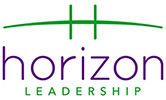"Every experience, no matter how bad it seems, holds within it a blessing of some kind. The goal is to find it." ~ Buddha
We've all heard the phrase 'there is an elephant in the room'. It's code for a difficult issue or significant problem that people don't feel comfortable talking about. It has a power and weight to it that can immobilize an organization or team. However, despite being unspoken the "elephant" issue is either consciously or unconsciously impacting relationships and the ability to get things done.
I believe we should learn to embrace the elephant in the room. Yes, it means that there is some force causing people to be uncomfortable and not talk about something. It's an energy that is big and unmovable. In fact, it could be something that is so sacred, fearful or important that no one wants to go near it. Isn't that usually a signal of something of vital importance that has to be courageously and respectfully explored?
Elephants as a species are powerful. They are very strong and they are gentle. They are loyal. They are patient. It is often said that elephants do not forget nor do they forgive. They are also associated with having great wisdom and compassion. They will fiercely protect what is important to them.
I would like to shift the perspective on elephants in the room. I believe that when the elephants emerge in team processes it's a signal of something transformative unfolding. It may be a bold change that is on the verge of happening. It could be a shift in dialogue that is becoming more open and honest; that the true essence of something important is being revealed. The elephant tension denotes vulnerability and diversity of opinion emerging.
Elephant energy can feel edgy. However, when we embrace it and explore it we can reveal important things that untended to will limit change, innovation or brave new visions from emerging. When we pause to honour the elephant, to name it and work with its energy, we are tapping into a wisdom force that needs to be honoured in order to move forward.
In my experience coaching teams, I often call out the elephant(s). I draw one on a flip chart and ask the team what it is. I playfully identify that the elephant(s) are in the room. I then ask people to pause and quietly reflect on what elephants are present and to write them on a post it note. Everyone gets to put them on the elephant. From there we group them by similar themes. This is a way of revealing the voices of the system; often the marginalized or unpopular ones.
Once we see the themes, we create conditions for people to talk about the elephants. It requires a tenderness and respect in how people talk about them. I always ask about the elephant wisdom and how it is trying to serve at this time. We explore what is needed so that this wisdom can be considered as we go forward.
While it may be easier to ignore the elephants because they take energy to deal with, I find that when teams can talk about the elephants in a curious and supportive way they release energy that blocks them from true creative collaboration. Acknowledging and processing the elephants can be a bonding process. It is a way of sharing history and story of an organization in a constructive manner. By speaking of the elephants some of their power is diminished. It frees up energy and opens awareness to what people want to see happen. Elephant exploration helps rewire the collective brains of the team so that new energy can be realized.
It is my wish that instead of ignoring or marginalizing the elephants in the room, that we embrace them and actively invite them into conversations. Only then can we access their wisdom so we can move forward together in more productive and positive ways.
We have much to learn from elephants. The following is a description of the attributes of elephants from a shamanistic perspective. May we embrace these qualities for the sake of healthy and vibrant team relationships and organizational cultures.
"Elephants can teach us that gentleness, commitment, and communication in relationships is very powerful and necessary to keep relationships alive, trusting and loving, whether it be friends, family or partner. Deeply committed to all creatures with whom they have relationships, elephants are tough when protecting others and gentle when nurturing them. The matriarch (the oldest, most experienced female leader of a herd) leads in a way that is both gentle and inclusive. Elephants are able to communicate telepathically. This can teach us how to truly listen to others."
http://www.shamanicjourney.com/elephant-power-animal-symbol-of-commitment-royalty-strength




